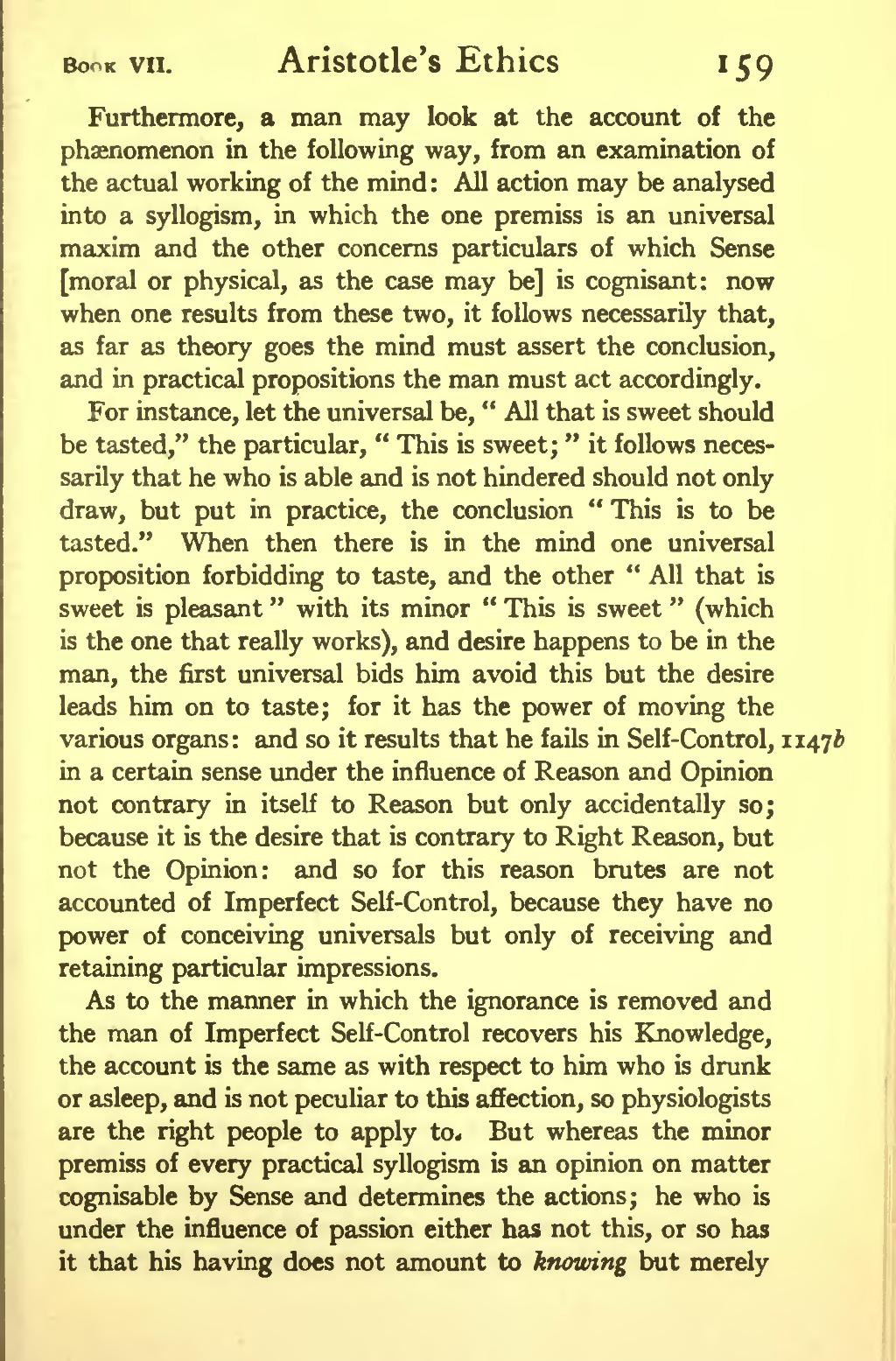Furthermore, a man may look at the account of the phænomenon in the following way, from an examination of the actual working of the mind: All action may be analysed into a syllogism, in which the one premiss is an universal maxim and the other concerns particulars of which Sense [moral or physical, as the case may be] is cognisant: now when one results from these two, it follows necessarily that, as far as theory goes the mind must assert the conclusion, and in practical propositions the man must act accordingly. For instance, let the universal be, “All that is sweet should be tasted,” the particular, “This is sweet;” it follows necessarily that he who is able and is not hindered should not only draw, but put in practice, the conclusion “This is to be tasted.” When then there is in the mind one universal proposition forbidding to taste, and the other “All that is sweet is pleasant” with its minor “This is sweet” (which is the one that really works), and desire happens to be in the man, the first universal bids him avoid this but the desire leads him on to taste; for it has the power of moving the various organs: 1147b and so it results that he fails in Self-Control, in a certain sense under the influence of Reason and Opinion not contrary in itself to Reason but only accidentally so; because it is the desire that is contrary to Right Reason, but not the Opinion:[1] and so for this reason brutes are not accounted of Imperfect Self-Control, because they have no power of conceiving universals but only of receiving and retaining particular impressions.
As to the manner in which the ignorance is removed and the man of Imperfect Self-Control recovers his Knowledge, the account is the same as with respect to him who is drunk or asleep, and is not peculiar to this affection, so physiologists are the right people to apply to. But whereas the minor premiss of every practical syllogism is an opinion on matter cognisable by Sense and determines the actions; he who is under the influence of passion either has not this, or so has it that his having does not amount to knowing but merely
